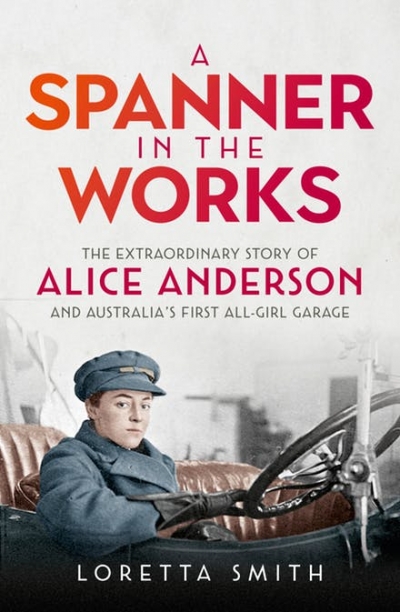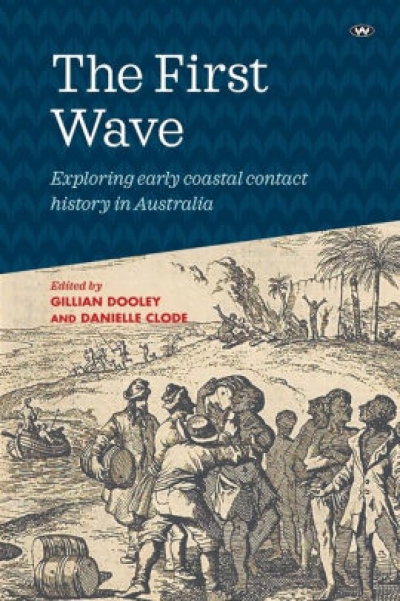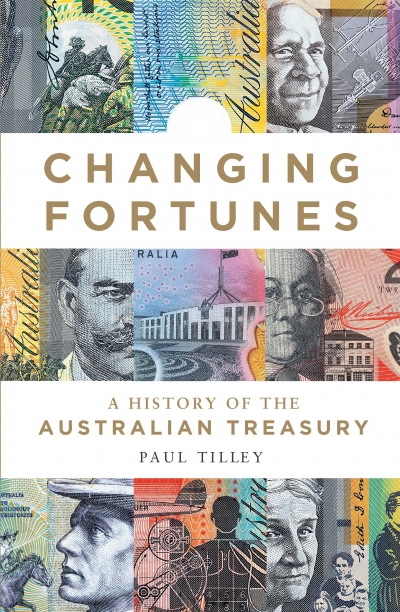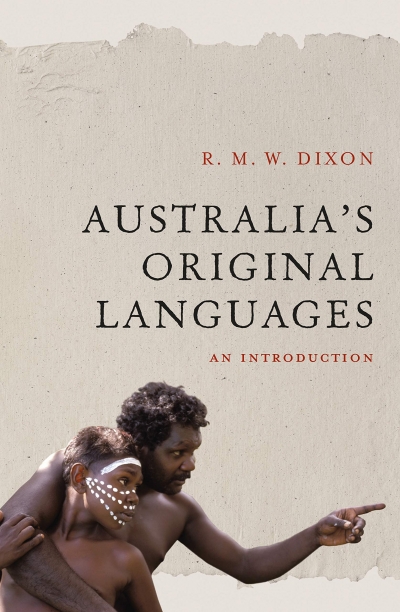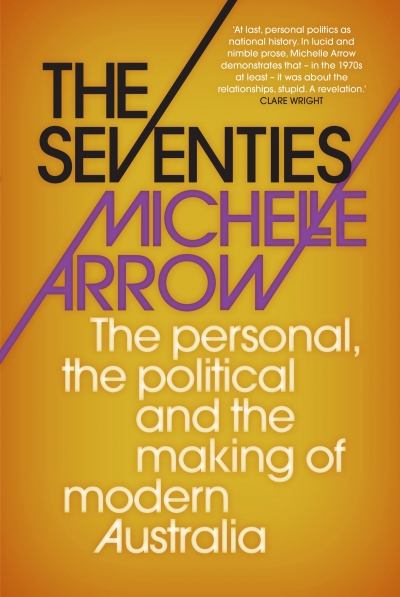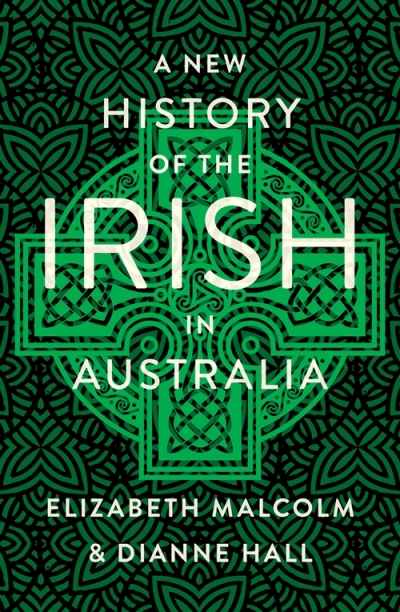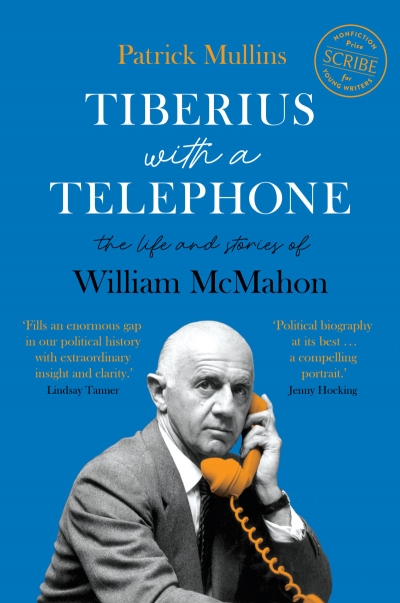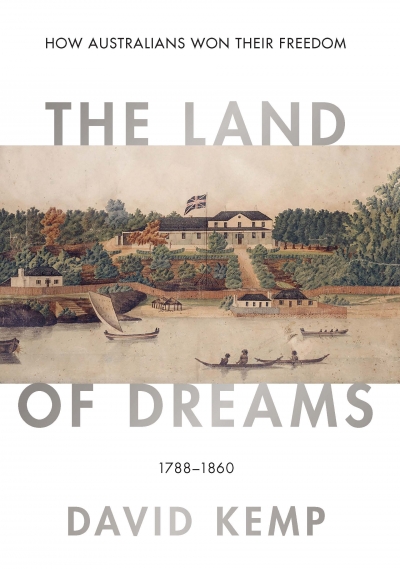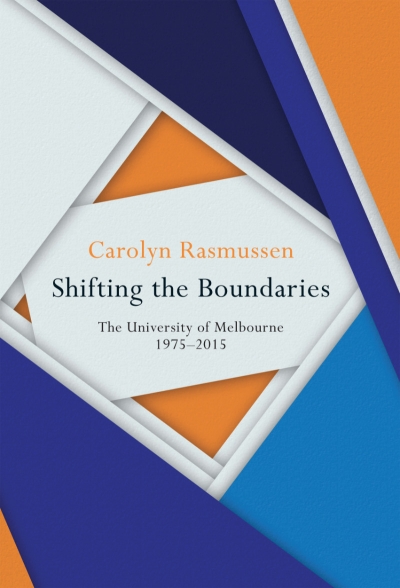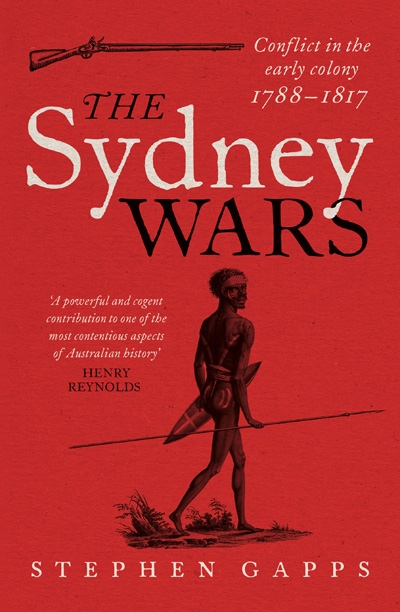Australian History
A Spanner in the Works: The extraordinary story of Alice Anderson and Australia’s first all-girl garage by Loretta Smith
On the evening of 6 August 1926, Alice Anderson donned her driving goggles and gloves, waved to the cheering crowds outside Melbourne’s Lyceum Club, and got into her tiny two-seater Austin 7. With her former teacher Jessie Webb beside her, the boot packed with two guns, sleeping bags, a compass, four gallons of water, a supply of biscuits, and, strangely, two potatoes with red curly wigs, she tooted the horn and set off. Her mission? A three-week pioneering trip to the never-never. ‘There is only one main route from Adelaide to Darwin, and that is only a camel track,’ the tiny young woman behind the wheel said breezily of the 2,607-kilometre journey ahead of her. ‘We are not going to stick to the beaten track.’
... (read more)The First Wave: Exploring early coastal contact history in Australia edited by Gillian Dooley and Danielle Clode
First encounters between Indigenous Australians and European voyagers, sealers, and missionaries often unfolded on the beach, a contact zone where meaning and misunderstanding sparked from colliding worldviews. This sandy theatre also serves as one of the enduring metaphors of ethnographic history, a discipline that reads through the accounts of European explorers, diarists, and administrators to reconsider historical accounts of the gestures of Indigenous people from within their own cultural frameworks.
... (read more)Changing Fortunes: A history of the Australian treasury by Paul Tilley
Paul Tilley classes the Treasury, now housed in Canberra, as ‘one of Australia’s great enduring institutions’. It began humbly in 1901, in a smallish stone building that still stands at the corner of Collins and Spring Streets in Melbourne. That handsome structure appears to be just about the correct size for its initial staff of five. Just across the street stands a statue of Sir William Clarke, a rich pastoralist of that era who, had he sold some of his properties and sheep, might easily have paid for all the salary cheques signed by the nation’s Treasury in its first weeks.
... (read more)Australia’s Original Languages: An introduction by R.M.W. Dixon
Bob Dixon has researched Australian Indigenous languages since the 1960s, has constructed grammars of five languages, and has written numerous scholarly books and articles on Aboriginal languages ...
... (read more)The Seventies: The personal, the political and the making of modern Australia by Michelle Arrow
The first volume in this series, Beverley Kingston’s A History of New South Wales, was published in 2006. Since then another five have appeared, including a book on Tasmania by Henry Reynolds and another on Victoria by Geoffrey Blainey. Cambridge University Press may be proceeding with its ...
... (read more)A New History of the Irish in Australia by Elizabeth Malcolm and Dianne Hall
There is much to admire about this detailed and painstaking book. The authors have entered a field that is replete with stereotypes and even gags. They will have none of it. The result is an account of the Irish in Australia subtly modulated and insistent on evidence. It is suspicious of the lore and yarns that have sometimes been made to take their place ...
... (read more)Tiberius with a Telephone: The life and stories of William McMahon by Patrick Mullins
Billy McMahon, Australia’s twentieth prime minister, held the post for less than two years (March 1971–December 1972). In surveys of both public esteem and professional opinion, he is generally ranked as our least accomplished prime minister. He is also, until now, the only prime minister for whom there has been no ...
... (read more)The Land of Dreams: How Australians won their freedom,1788–1860 by David Kemp
This is the first of a five-volume series, apparently all by David Kemp, with the general title Australian Liberalism. The second volume, A Free Country: Australians’ search for utopia 1861–1901, is planned by Melbourne University Publishing next year. Kemp was senior lecturer and then Professor of Politics at ...
... (read more)Shifting the Boundaries: The University of Melbourne 1975–2015 by Carolyn Rasmussen
During the 1960s and 1970s, student radicals protested that their places of learning were getting too close to industry and government. In 1970, Monash University students occupied the university’s Careers and Appointments Office to oppose the use of the university as a recruiting ground for companies ...
... (read more)The Sydney Wars: Conflict in the early colony, 1788–1817 by Stephen Gapps
The Uluru Statement from the Heart, in May 2017, might not have had much resonance with the federal government. However, it coincides with a new phase of writing and research that helps to round out its long-term significance and impact. Mark McKenna has expanded on the importance of ...
... (read more)

